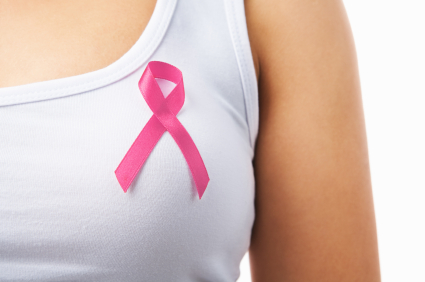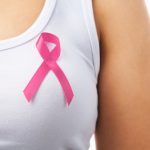A plethora of pink products on every store aisle, amazing survival stories in the news, even professional football players donning pink jerseys… it can only mean one thing—October is Breast Cancer Awareness month! In recognition of this annual educational campaign, Nick Messina, M.D., presents the latest research on how shedding the pounds can decrease your risk of breast cancer.
Breast cancer is the most common cancer among American women, except for skin cancers. About one in eight women in the United States will develop invasive breast cancer in their lifetime.
The American Cancer Society’s (1) most recent estimates for breast cancer in 2012 are:
- About 226,870 new cases of invasive breast cancer will be diagnosed.
- About 63,300 new cases of carcinoma in situ (CIS) will be diagnosed. (CIS is non-invasive and is the earliest form of breast cancer.)
- About 39,510 women will die from breast cancer.
Many research studies have shown that being overweight or obese increases a woman’s risk of being diagnosed with hormone-receptor-positive (ER+) breast cancer. ER+ breast cancer cells have receptors on their outer surface that pick up hormone signals telling the cells to grow. It is highly probable that extra body fat increases levels of estrogen and other hormones; thus increasing the risk of breast cancer.
A recent study, cited in the Journal of Clinical Oncology (2), supports the link between excess weight and higher hormone levels.
This study included 439 overweight or obese postmenopausal women who were considered sedentary before joining the study. They were randomly assigned to one of four groups: a diet-only group, an exercise-only group, a diet-plus-exercise group, and a control group with no special diet or exercise.
During the yearlong study, measurements of estrogen-like hormones, testosterone, and Sex Hormone Binding Globulin (SHBG) were obtained. At the end of the study, women in the diet-only and the diet-plus exercise groups lost about 10 percent body weight and had much lower hormone levels than they did when they started. These two groups also had much lower hormone levels than the control group. The largest drop in hormone levels occurred in the diet-plus-exercise group.
Among the estrogen-like hormones in the study:
- Estrone levels dropped 9.6 percent with the diet-only group, and 11.1 percent in the diet-plus-exercise group.
- Estradiol levels dropped 16.2 percent in the diet-only group, and 20.3 percent in the diet-plus-exercise group.
- Free estradiol levels dropped 21.4 percent in the diet-only group, and 26.0 percent in the diet-plus-exercise group.
Levels of the hormone testosterone also went down, with free testosterone levels dropping 10 percent in the diet-only group, and 15.6 percent in the diet-plus-exercise group.
Sex Hormone Binding Globulin (SHBG) was also measured. SHBG is a protein that attaches to sex hormones, such as estrogen and testosterone, and makes these hormones less active.
SHBG levels increased 22.4 percent in the diet-only group, and 25.8 percent in the diet-plus-exercise group. Other studies have shown that higher levels of SHBG are associated with a lower risk of breast cancer.
The results of this study highlight the potential role of lifestyle behaviors in reducing postmenopausal breast cancer risk. Losing weight, especially body fat, through changes in diet and exercise may lower hormone levels and decrease estrogen-sensitive breast cancer risk.
Achieving a healthy weight through diet and exercise and maintaining a healthy lifestyle can help improve overall health, lower the risk of breast and other cancers, and make survival more likely if breast cancer is ever diagnosed.
Don’t let you or your loved ones become another statistic—take the necessary steps now to reduce risk of breast cancer.
- American Cancer Society. www.cancer.org
- Campbell et al. Reduced-Calorie Dietary Weight Loss, Exercise, and Sex Hormones in Postmenopausal Women: Randomized Controlled Trial. J Clin Oncology. May 21, 2012, dol: 10.1200/JCO.2011.37.9792






